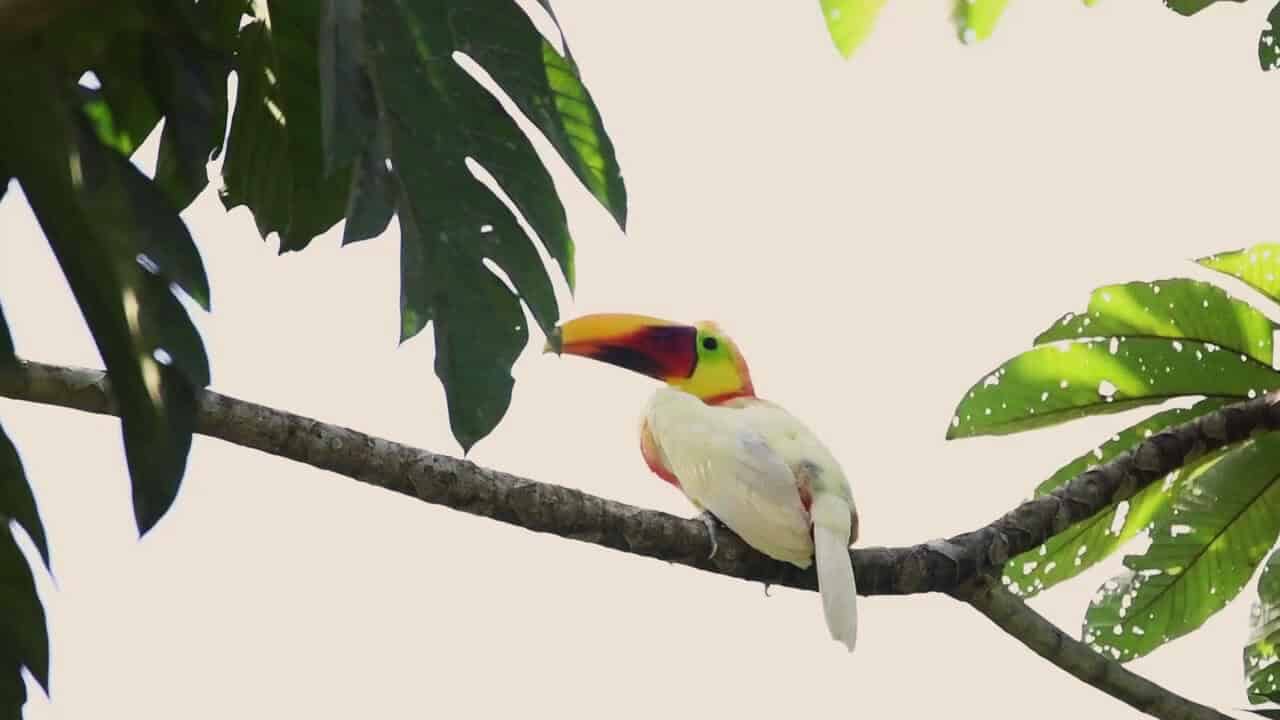Costa Rica, renowned for its breathtaking biodiversity, has once again stunned the world with a rare wildlife sighting. A majestic white toucan, a symbol of Costa Rica’s rich wildlife, was recently spotted in the Guápiles area of Limón. According to experts, the bird is estimated to be around five years old.
Alexander Montero, a nature enthusiast, had the rare opportunity to record and photograph this extraordinary white toucan. He quickly uploaded the footage to social media, where it went viral, captivating hundreds of users with the toucan’s ghostly appearance. “You guys have to see this; it’s a white toucan! It looks like a ghost of a toucan, as I call it,” Alexander exclaimed in his video.
The toucan, affectionately named Panchito, has drawn global interest as it is a rare example of leucism in wildlife. Experts clarified that Panchito does not have albinism but a condition called leucism. Leucism affects the pigmentation in the feathers and beak, giving them a pale and almost translucent appearance. Despite its unique coloring, the condition does not impact the bird’s health or ability to thrive in its natural habitat.
Panchito has been photographed before, but sightings of this rare bird are extremely difficult. “We were waiting for hours with no luck. Reports and the local guide indicated this was where it had appeared in previous days,” said Luis Solano Pochet, who managed to spot the white toucan in 2019.
Carlos Bolaños, an amateur photographer, shared his experience of spotting Panchito in 2019 and explained the challenges of locating such a rare bird.
“For four days, I dedicated myself full-time, (all day long) to walking around the area searching, but nothing. On the fourth day, I’ll be honest, I lost hope. I decided to go back and forget about the white toucan for a few days. However, the farm guard encouraged me. I stayed several more hours, and suddenly, it appeared,” he shared.
Costa Rica continues to amaze the world with its unique wildlife and rare sightings, showcasing the importance of preserving its extraordinary biodiversity.






